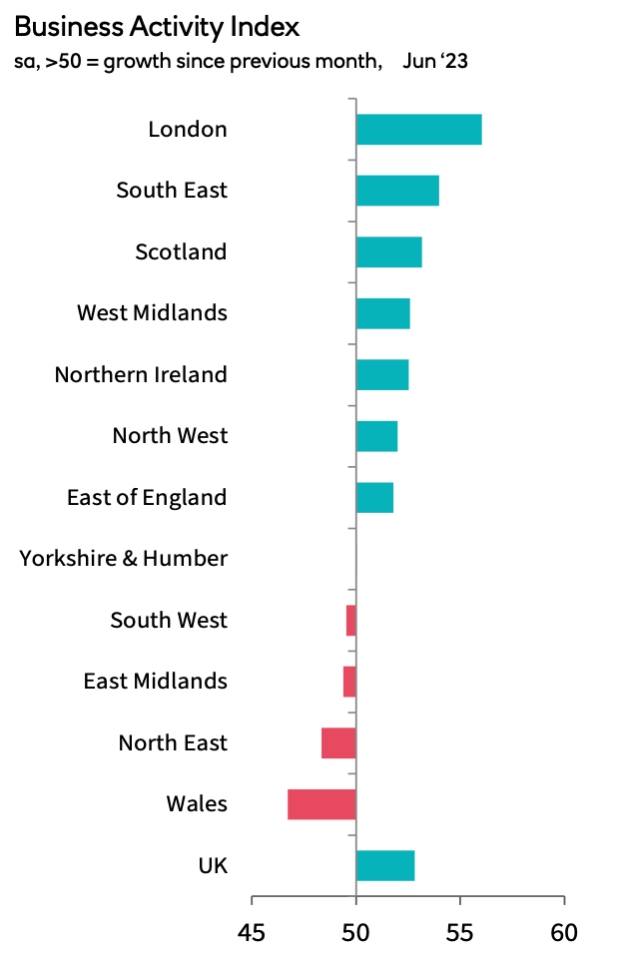London economy steams ahead of every other UK region but interest rate hikes contain growth

London’s economy is steaming ahead of every other region in the UK, but there are signs higher interest rates and a return of recession jitters is holding the capital back, a new survey out today shows.
Economic growth in London in June was far above the UK average and even its closest competitor, the south east, according to Natwest’s latest regional purchasing managers’ index (PMI).
The bank’s activity index hit 56 last month, far above the 50 points threshold that separates growth and contraction. However, it did slip from 58.5 in May.
June’s slowdown was triggered by consumers and businesses reining in spending in response to the Bank of England hiking interest rates aggressively to tame inflation, Natwest said.
Traders are betting rates will peak at around 6.5 per cent and that the MPC may repeat last month’s 50 basis point increase in August.
“London remained the standout region of the UK economy in June with the sharpest expansions of both activity and new business of the 12 monitored areas, yet the capital was not immune to a slowdown in growth,” Catherine van Weenen, Natwest London and the south east regional board, said.
“While continuing to signal a sharp upturn overall, new business rose at a much slower pace than in May, as some firms cited that economic uncertainty and rising interest rates had dampened client spending,” she added.
Anxiety about the UK slipping into a recession has amplified of late due to mortgage rates soaring amid mounting expectations of further increase to the UK’s interest rate from the Bank.

Every indicator on Natwest’s PMI was in positive territory for London, signalling its economy is still growing, but just at a slower pace.
Employment is up, as are new business and expectations of future income. However, resilient demand, likely a function of companies still being willing to hire, is keeping inflation in the capital elevated, with the prices charged index at 59.3. Although elevated, that reading was among the lowest it’s been in the last two years.
Costs are also rising rapidly in London, mainly driven by higher wages and energy prices. The input price index hit 68.9, also the highest in the country.
A similar dynamic is playing across the UK. Every region posted recruitment growth and input price growth, leading to higher prices charged.
That may concern officials at the Bank of England, who are trying to bring down wage growth and nudge up unemployment to suck demand out of the UK economy and put a lid on inflation, which is stuck at 8.7 per cent.